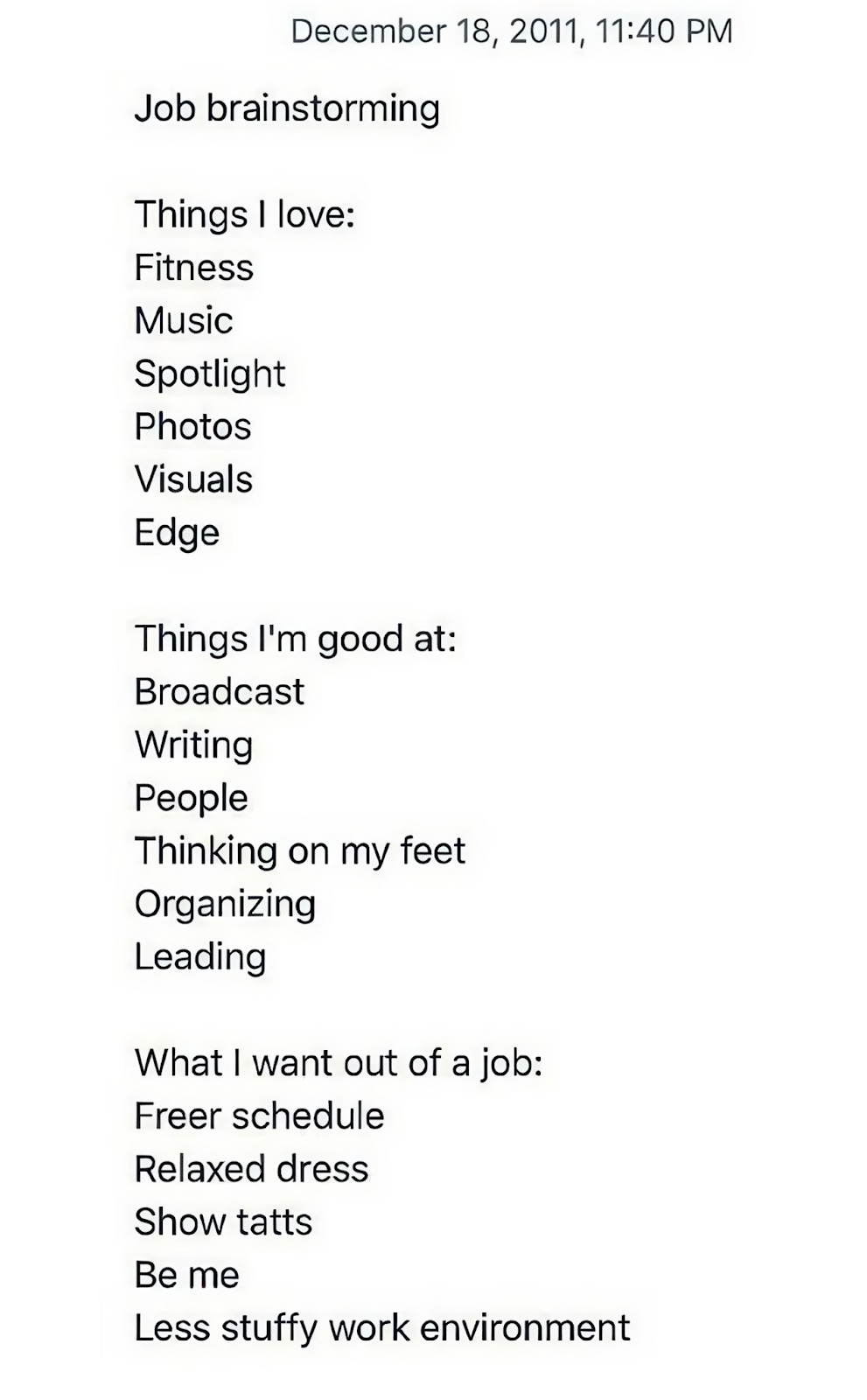Resumes are lifeless, impersonal pieces of paper that can never capture your true essence. The most powerful career tool you have is your professional identity.
Buzzwords like "personal brand," "thought leader," "creator," or "influencer" can feel distant or even off-putting. You might think:
"I'm not a product that needs branding."
"I don't have anything original to say."
“I'm just doing my job, not creating anything new.”
"I don't want to share my private life like a Kardashian."
Do you find yourself dismissing the idea of developing a professional identity? Here’s why that’s a huge mistake.
You’re passing up an opportunity to shape the life and career you truly want. Developing your professional identity isn't about becoming an Instagram celebrity or writing viral LinkedIn posts. It's about clearly defining and showcasing your unique value.
This misunderstanding leads to:
Struggling to stand out in a competitive job market
Inability to answer questions about unique value propositions
Feeling stuck or interchangeable in one's career
Missing out on opportunities for growth and advancement
Most people think their job title or profession defines their professional identity. They believe being a data analyst, HR coordinator, nurse, or financial advisor is all there is to it. This common belief has led to a sea of indistinguishable resumes and countless professionals struggling to articulate their unique value.
Your Professional Identity: More Than Just a Job Title
Your professional identity goes far beyond your current role or industry. It's a unique combination of your experiences, skills, values, and aspirations.
Think about it: no other person on the planet has the exact same set of personal circumstances, professional experiences, talents, and interests as you. You are 100% unique and can offer value that no one else can.
The issue isn't a lack of uniqueness – it's how you package and present yourself professionally.
How to Develop Your Professional Identity
“The only person you are destined to become is the person you decide to be.” - Ralph Waldo Emerson
Take a moment now to visualize the professional you aspire to be. Ask yourself:
What's most important to you in your career?
What qualities does your ideal professional have?
What future successes and achievements do you envision?
For example, Robin Arzon, now a celebrated Peloton instructor, began her journey from a grueling 18-hour day as an attorney to a fitness icon by redefining her professional identity. Here’s what she wrote in 2011:
This was the beginning of her transition to a fitness instructor, 2-time New York Times bestselling author, and 27-time marathoner.
Once you have a clear vision, begin taking small steps to transform into that person:
Reach out to someone you admire in your field
Propose an innovative idea at work
Apply for a dream role
Mentor a newcomer in your industry
Share your unique insights on professional platforms
Each week, plan another action that brings you closer to your ideal professional self. These steps become the building blocks of your evolving identity.
If you’re not sure about your strengths and interests, consider taking personal growth and professional assessments. These tools can provide valuable insights into your unique abilities and preferences.
Why Defining Yourself by Your Job Title is a Mistake
LinkedIn co-founder Reid Hoffman predicts that the era of traditional 9-to-5 jobs is coming to an end. Instead, our careers are becoming more fluid and project-based.
“You may not…do a lot of your work fully as an employee. You may…be working in the gig economy, or you may have two or three gigs. All of these things are the directional changes for what we’ve seen in the workforce for the last few decades. It…does create a lot of opportunity…, but it also creates a lot of uncertainty, and people like stability.” - Reid Hoffman
This shift means that developing a strong, adaptable professional identity is more crucial than ever. It's no longer about fitting into a corporate mold, but about creating a unique professional persona that's authentic, continuously learning, and adaptable to change.
Your professional identity is not given to you. It's something you create, nurture, and refine over time.
By developing a clear and compelling professional identity, you'll be able to:
Walk into any room with confidence
Articulate your unique value proposition
Adapt to the changing landscape of work
Attract opportunities rather than chasing after them
In a world where AI is increasingly involved in hiring processes, your professional identity becomes your most powerful asset. It's what sets you apart, guides your career decisions, and ultimately determines your professional success.
The future of work belongs to those who can confidently answer: "Who are you professionally, and what unique value do you bring?" Your answer to this question will define your career success.






A similar question that I found powerful: "What's your life's work?"
What's most important to you in your career?
- I want to have freedom over my schedule and to take more days off than a standard employee gets, so I can holiday more. I also want the income to support my lifestyle stress free.
What qualities does your ideal professional have?
- I would like to be specialist in a topic I think, so I can add value to others
What future successes and achievements do you envision?
- I think having the freedom I mentioned before would be the success for me